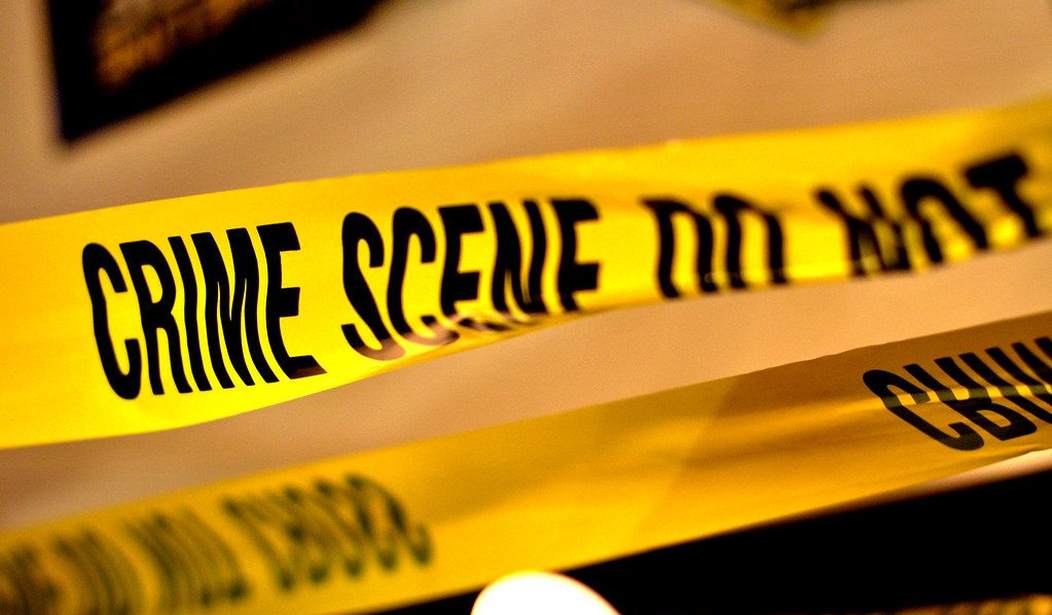Police in Houston, Texas continue to investigate a shooting that took place in a parking garage last weekend where a 32-year-old was killed after following a man to his parked car and opening the door once the man had entered the vehicle. According to authorities, a knife was found near Zakee Muhammad’s body, though police haven’t said whether or not it belonged to him. After questioning the shooter, police released him rather than arresting him and have referred the case to a grand jury, which is an indication that the evidence to date points towards self-defense.
Now Muhammad’s family is speaking out; not against the armed citizen, but against the system that they say failed the mentally ill man.
“It’s sad that I even have to be here in this situation because I have done everything to try to help my child. Everything. The State of Texas wouldn’t help us,” Tonya Brown, the victim’s mother, said, while standing in front of the Harris County Institute of Forensic Sciences on Tuesday.
Brown came to pick up property that belonged to her son, Zakee Muhammad. A plastic bag contained his cigarettes, lighters, phone, and crumpled dollar bills.
“Imagine,” she said, “It’s all I have left of my child.”
…
“I don’t want anybody to think my child was a bad person. I want them to know, my child, he’s just mentally ill. He’s sick. He was sick. It’s not fair,” Brown said.
Brown said her son was diagnosed with ADHD, schizophrenia, and bipolar disorder when he was 5 years old. She said the diagnosis eventually upgraded to schizophrenic with psychotic features and depression.
On Saturday, he texted his family that he was inside the parking garage being followed by a man in a government vehicle.
“The man probably wasn’t following him. He probably thought the man was following him,” Brown explained.
According to the family, Muhammad had spent time in group homes and psychiatric hospitals over the years, but was often released and returned to the streets, where he’d repeatedly been arrested and sent to jail instead of continuing to receive the in-patient treatment that his family says was necessary.
We don’t know all of the particulars of Muhammad’s criminal or mental health history, but it wouldn’t surprise me a bit if he was caught in the cracks of a crumbling mental health system. According to ABC 13 in Houston, data from June of 2022 indicated that Texas had 717 mental health beds offline out of a total of 2,911 in state-funded facilities, as well as a 2,400-person waitlist for inpatient competency restoration for criminal defendants. That is a huge problem, especially for those in the midst of a mental health crisis, but it’s not the only issue with mental health services in the state.
A Texas Department of State Health Services dashboard says 248 of 254 entire counties have mental health professional shortages, plus three more counties (Lubbock, Dallas and Nueces) have partial designations. That’s 97.6% of entire Texas counties with shortages.
The state’s behavioral health worker shortage is expected to grow, according to a 2022 strategic plan from Texas’ Statewide Behavioral Health Coordinating Council. This is due in part to experienced practitioners approaching retirement and difficulties producing enough graduates from higher education institutions.
A 2020 Texas Behavioral Helath Workforce report acknowledged the pandemic “will only exacerbate existing behavioral healthcare shortages.”
This isn’t just a Texas problem. In state after state we’re seeing a shortage of mental health workers and a decline in the number of beds available for those with acute mental illness in need of in-patient treatment. The RAND Corportation recently detailed a shortage of almost 8,000 in-patient beds, including 3,000 in acute care facilities. In New York, Gov. Kathy Hochul ordered hospitals around the state to bring about 850 beds back online last year, but so far only a couple hundred have been restored, and major issues remain when it comes to providing treatment for those who are a danger to themselves or others.
New York-Presbyterian Brooklyn Methodist Hospital in Park Slope is down 28 psychiatric beds since the pandemic, according to Irving Campbell, who works in the unit and is the chief delegate for the New York State Nurses Association (NYSNA) at the hospital.
All told, the hospital went from 52 such beds to 24, said Campbell.
“There’s no reason why they aren’t open,” he told THE CITY. “There’s definitely a need. We’ve got clients in the emergency room waiting multiple days for a bed.”
…
Hospitals throughout the state have struggled to recruit medical personnel to staff the psychiatric units, noted Cheryl Roberts, a city court judge in Hudson, New York who presides over the mental health court in the area.
Columbia Memorial Hospital in the area has a 22-bed unit, but only has staff available for 16 beds, according to Roberts, who is also the executive director of the Greenburger Center for Social and Criminal Justice.
“They don’t have enough staff, even though there’s a need,” she said. “It’s a real problem.”
The lack of mental health care not only keeps troubled individuals away from getting treatment, but leads to more violent crime. As we noted earlier, Muhammad had been repeatedly sent to jail before his death last weekend, and in a much more high-profile case, Jordan Neely had cycled in and out of treatment and jail for years before his death on a New York City subway when retired Marine Daniel Penny placed Neely in a chokehold after he had allegedly threatened passengers on the subway car.
Gun control activists insist that when guys like me bring up these problems we’re simply trying to deflect attention away from their “commonsense” measures aimed at legal gun owners, which isn’t the case. I’m more than happy to discuss the ineffectiveness and unconstitutionality of their proposals, but I write about our crumbling mental health system because fixing these problems would go a long way towards reducing violent crime and self-harm, improving public safety, and addressing the growing number of Americans who are desperately looking for help but are finding closed doors instead. Slapping another gun control law on the books allows politicians to say they’ve “done something”, but if we want to truly address these issues we need to do something substantial with our mental health system instead of criminalizing the exercise of a fundamental civil right.









Join the conversation as a VIP Member